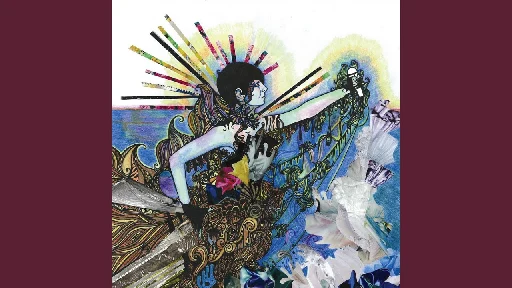uncritical support
yo i dont think Woody would approve, Toy Story 5 gonna be wack
YouTube Video
Click to view this content.
enshittification !meow-tableflip
Wapo completes transition to astroturf legacy media
Here's who's actually making each of these 'Disco Elysium spiritual successors' and their odds of doing something cool.

YouTube Video
Click to view this content.
adopt a large adult son to train as my successor
https://en.m.wikipedia.org/wiki/Israel_Englander
yeah similar, hadnt thought about it in ages
Shit this brought to mind that show 'Duckman'
European Parliament President Roberta Metsola halted


shake hands with danger
Just remember to rush into the telephone booth to remove your glasses when changing into landlord guy. And have ready an excuse why tenant guy is never onsite when landlord guy comes around.
haha pizza go yum-yum
real pinkertons use Hustlers Rough font
Stefania Prandi in Foggia, Deepa Parent and Tom Levitt Tue 27 Aug 2024 07.30 CEST
https://www.theguardian.com/global-development/article/2024/aug/27/indian-migrant-worker-death-heat-stress-italy
Italy has been shocked by reports of the “brutal” treatment of migrants working on farms across the country and the death of a flower picker in temperatures of about 40C (104F). Tens of thousands of migrants have been taking to fields to pick tomatoes and other crops across Italy at the same time as the country has been engulfed in consecutive heatwaves since the middle of June.
The Italian Meteorological Society said average summer temperatures in Italy between June and August have increased by 1.5C over the past 30 years, from 1994 to 2023.
Sweltering heat has brought a new and deadly risk to low-paid workers toiling outdoors to pick fruit and vegetables.
Dalvir Singh, who worked on a flower farm, is thought to have died from a combination of extreme summer heat and a heavy workload. The 54-year-old was found dead on 16 August in a field near the city of Latina in central Italy. Colleagues who spoke to the Guardian said that he had never been sick and was a “kind man who always worked hard”.
He sent back regular remittances to his family in Punjab, in the north of India, but friends said Singh had intended to return home within the next few years as he found it increasingly difficult to work in the fields every day as he grew older. His son and son-in-law are now trying to take his body back to India.
The results of an autopsy are expected next month with local prosecutors still investigating the circumstances of Singh’s death and whether precautions for workers exposed to heat were taken by his employer.
It is unknown how many workers have been injured or died due to extreme heat in Italy this summer. But the country is estimated to have had the highest number of fatalities in Europe as a result of last year’s high temperatures – more than 12,000.
The Italian health and safety body has said in the past that accidents at work attributable to the heat are almost never classified as such, rather as fainting, falls or something similar.
Most of those working in fields in the summer heat are migrants from countries including India and sub-Saharan Africa. Despite the billions of euros in revenue generated by Italy’s lucrative food industry, harvesting roles come with low wages, long hours and a lack of employment rights.
Many workers live in ghettoes and abandoned buildings, with their employment controlled by gangmasters who recruit and keep part of their wages, say unions.
Activists in Italy said bosses and gangmasters who exploit workers have no problem forcing them to work in any heat condition, with many doing shifts lasting 10-14 hours a day.
In July, Italian police described more than two dozen Indian migrants they rescued from a farm in central Italy as having been “reduced to slavery” through debts, the confiscation of their passports and dilapidated housing. The previous month, a farm worker died when he was allegedly left on a road by his employer after an accident in which his arm was severed.
“When extreme heat is correlated with criminal activities in agriculture, it is clear that the tragedies we have been [predicting] for so long are actually occurring,” says Fabio Ciconte, the director of the food and farming NGO Terra.
At least 30 people have fainted in Agro Pontino (an area of reclaimed farmland in central Italy about 40 miles from Rome) due to the heat since June, says Marco Omizzolo, a sociologist at La Sapienza University of Rome.
Instead of calling ambulances and making medical reports, the employer or gangmaster will place the worker in the shade or give them cold water or coffee before allowing them to continue work.
“Employers and gangmasters hide everything in order to avoid legal problems,” says Omizzolo.
Another death with parallels to Singh’s was that of Famakan Dembele, 28, a tomato picker in the southern Italian province of Foggia, who died on 7 August last year. The Guardian visited Foggia recently to report on conditions.
It had been a scorching hot day, former colleagues of Dembele say. After he had finished his shift, Dembele had gone to wash in one of the shared bathrooms in a ghetto, Torretta Antonacci, not far from Foggia, where he lived along with about 2,000 other farm workers.
The mostly African migrants in the ghetto had little in the way of facilities. No running water, no electricity and no sanitation. Just a water tank refilled daily by a lorry. And makeshift housing put together from recycled materials.
The Mali-born Dembele had only arrived at the ghetto from Paris a few days earlier. He had been drawn to Foggia, like thousands of other migrants, to work on the region’s tomato harvest, with much of it canned and sent to shops and supermarkets across the UK and Europe.
At about 2pm, other workers say they saw Dembele lying in the shade underneath an olive tree. It began to rain and his co-workers approached to see why he was not moving despite the water pouring from the sky.
In the Torretta Antonacci ghetto, a woman carries a container of drinking water to her shack. Up to five litres of water is consumed every day by the field workers. Photograph: Stefania Prandi An ambulance was called, but witnesses say he was declared dead and a white sheet was spread over his body. His body remained under the olive tree until the medical examiner arrived and he was taken to the morgue.
The cause of death remains unknown, but workers the Guardian spoke to insist he died from extreme heat and exhaustion. Workers are usually paid by the number of boxes or crates of tomatoes they pick, and make about €35 (£29) a day.
“After Dembele’s death, we all think twice before proceeding into the hottest hours. We can also drink five two-litre bottles in 24 hours,” says a 32-year-old worker from Guinea-Bissau who wished to remain anonymous.
A judicial file on Dembele’s death was opened and closed at a court in Foggia, but requests for information there and with the local health authority by the Guardian were turned down.
Hygiene conditions at Torretta Antonacci are terrible. Photograph: Stefania Prandi “In some cases, the fatigue is so severe that people bleed for days when they go to the bathroom,” says Francesco Caruso, a university researcher and union support worker. “Except for those with contracts, of which there are few, it is almost impossible to work every day.”
Another former colleague, Daniel, who has spent many years working on farms in France and Italy says working under the summer sun has become a curse. “If they poured money on me and said, ‘Well, now the tomato field is yours, you have to work on it every day,’ I would refuse. Working in such conditions is hell, not life.”
Climate scientists have warned that vulnerable migrant workers are among those most at risk from extreme heat in Europe and the rest of the world.
“The people who die [from heat stress] are the people we care least about in society,” says Friederike Otto from the Grantham Institute for Climate Change and the Environment at Imperial.
YouTube Video
Click to view this content.
YouTube Video
Click to view this content.
https://www.ft.com/content/78a699f2-1f72-4796-9211-6aad2c75e747
Nvidia’s earnings “have become as important for US markets as key economic data,” writes MainFT. For some, they’d become another excuse to get drunk on a Wednesday afternoon.
On a swelteringly hot New York summer’s day, four dozen or so sweaty Nvidia enthusiasts gather at a StoreHouse sports bar on Sixth Avenue. Together, they count down to the chipmaker’s second-quarter results, eyes fixed on the seven large screens blasting CNBC’s Fast Money rather than round two of the US Open.
The mastermind behind this gathering is Lauren Balik, an equities analyst who earlier in the day had invited “longs, shorts, and anyone else” to come grab a beer in honour of Wall Street’s hottest stock. So — sandwiched between an off-duty exotic derivatives trader and a young man in tech who swears he’ll sell his Nvidia holdings “in a heartbeat” if it hit $140 — FTAV had happily obliged.
Balik tells FTAV she’s “mostly very bearish on things”. The three light-up bubble-blowing pistols she distributed to the predominantly male crowd attested to this playful scepticism. “I love a good bubble more than anything,” she continues. “Figuring out when it’s going to burst is such a fun little game”.
“I thought why not, let’s host this event,” she shouts over the hubbub.
We’re at a sports bar. All sports lead to gambling, and Wall Street has always been about gambling, too. So I thought, why not combine the two? If you’re watching football or baseball and you’ve got money riding on it, it’s the same thing with stocks. People get attached to these things for better or worse. It’s the way our times work.
Balik has “bubbles embedded in me,” she adds. “I remember growing up in Virginia, I had loads of friends whose parents worked at the big internet companies [ahead of the dotcom crash]. Mark Lynch, Microstrategy’s chief financial officer, taught me business studies at high school. I was his star student! It’s very funny.”
The exotic derivatives trader weighs in gloomily: “The fact there’s a dedicated countdown on CNBC to these results, watched at a bar by a bunch of lemmings like me . . . it’s over, man. It’s over.”
The countdown itself begins before we find out what, exactly, “it” might be. Juiced up on expensive craft beer, the crowd booms FIVE, FOUR, THREE, TWO, ONE and lets out a collective “HELL YEAH” as the share price initially ticks higher. A man in a baseball cap thrusts his arms into the air in delight. Another promptly downs a pint of Bud Light. A disgruntled sports fan at the far end of the bar looks on, confused.
But the good times don’t last. Though no one in the room seems to care much by now, revenue in the three months through July comes in at $30bn, — up 122 per cent from a year ago but barely ahead of the $28.7bn analysts had expected. Plus, Nvidia is expecting $32.5bn in revenue for the current quarter, plus or minus 2 per cent, which is only narrowly ahead of expectations. In Nvidia earnings world, this qualifies as a blip, and the share price swings lower to a chorus of boos.
Still smiling from ear to ear, Balik tells us the owner of the bar had a baby earlier in the day. “Maybe Nvidia would make for quite a nice middle name. . . See you here next quarter?”

YouTube Video
Click to view this content.

YouTube Video
Click to view this content.
Ronin Mode Tribute to Martin L. Gore Counterfeit Never Turn Your Back On Mother Earth HQ Remastered Ronin Mode is an American electronic mu...

mother earth will win










